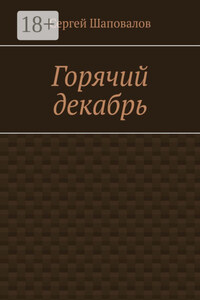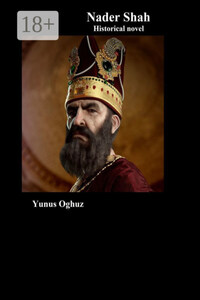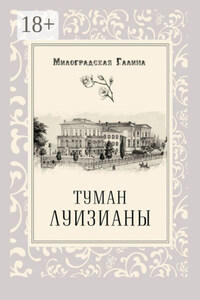NIGERIA ITS PEOPLES AND ITS PROBLEMS
BY E. D. MOREL
TO THE MEMORY OF MARY KINGSLEY WHO POINTED THE WAY
* * *
PREFACE
I have to express, in the first place, my indebtedness to the Editor and Management of the Times and of the Manchester Guardian for permission to reproduce the articles and maps which appeared in the columns of those newspapers, and to all those who have so generously helped me to overcome an accident to my camera by placing their own admirable photographic work at my disposal.
In the second place, I desire to record my sincere appreciation for the courtesy I received from the Colonial Office in connection with a recent visit to Nigeria; and to Sir Walter and Lady Egerton, Sir Henry Hesketh Bell, Mr. Charles Temple (Acting-Governor of Northern Nigeria) and their Staffs for the kindness and hospitality extended to me while there.
Also to the Management and Staff of the Southern and Northern Nigeria railways; in particular to the Director of the Public Works Department of the Northern Protectorate, Mr. John Eaglesome and to Mrs. Eaglesome, and to Mr. Firmin, the Resident Engineer of the Southern Nigeria line at Jebba.
My travels in the country were facilitated in every way possible, and the kindness everywhere shown me in both Protectorates far transcended any claim which ordinary courtesy to a stranger might have suggested.
To the British merchants established in Nigeria I am under similar obligations, more particularly to Messrs. John Holt & Co., Ltd., who were good enough to place their steamers at my disposal. To Messrs. Elder Dempster & Co. I am similarly indebted.
My special thanks are due to my friends Mr. and Mrs. William A. Cadbury and Mr. John Holt and his sons, for much personal kindness in connection with my journey. I am indebted to Mr. Trigge, of the Niger Company, Mr. W. H. Himbury, of the British Cotton Growing Association, and many others who have responded with unwearied patience to my importunate questionings.
I have also to express my sense of obligation to the Native Community of Lagos—Christian, Mohammedan and Pagan—for the cordial public reception they accorded to me in that place; and for the address with which they were good enough to present me. Also to the leading Native gentlemen of Freetown for the kind hospitality they extended to me during my short stay at the capital of Sierra Leone, and to the Mohammedan Chiefs representing many different tribes of the hinterland, who there foregathered, under Dr. Blyden’s roof, to bid me welcome, and for the addresses they presented to me.
West Africa is a land of controversy. There is not, I think, any question of public interest concerned with it that does not give rise to acute differences of opinion into which some influence—the climate, perhaps—and the fact that the country is going through a difficult transition stage, seems not infrequently to infuse a measure of bitterness. I fear it is unavoidable that some of the opinions expressed in this volume, if they give pleasure in certain quarters, will give displeasure in others. I can only ask those who may be affected in the latter sense to believe that the writer has really had no other object in view than that of setting forth the facts as he saw them, and to draw from those facts the inferences which commended themselves to a judgment no doubt full of imperfections, but able, at any rate, to claim sincerity as its guiding motive.
E. D. MOREL.
August, 1911.
* * *
INTRODUCTION
My chief object in presenting to the public in book form a collection of articles recently published in the Times as revised, together with additional matter, has been that of increasing—if haply this should be the effect—public interest in the greatest and most interesting of our tropical African Protectorates. It has been my endeavour throughout not to overload the story with detail, but to paint, or try to paint, a picture of Nigeria as it is to-day; to portray the life of its people, the difficulties and tasks of its British governors, and the Imperial responsibilities the nation has contracted in assuming control over this vast region.
Parts II., III., and IV. consist of an attempt at a serious study of these things.
Part I. consists of a mere series of pen and ink sketches, so to speak; impressions jotted down in varying moods. The value, if, indeed, they have any value at all, of these disjointed ramblings lies in the glimpse they may afford of native character and the nature of the country, thus helping, perhaps, to bring Nigeria a little nearer to us.
I ought, perhaps, to apologize for not having incorporated a history of the British occupation of Nigeria. But, apart from the circumstance that Captain Orr, now Colonial Secretary for Cyprus, and for many years Resident in Northern Nigeria, is, I understand, about to publish a volume on that subject written with the inside knowledge which he so peculiarly possesses: the thing has already been done by others.
It seemed to me that if any public utility at all were to be attached to my own modest effort, it could more fittingly be sought in the direction of handling, from an independent outsider’s point of view, problems of actuality in their setting of existing circumstances and conditions; and in emphasizing a fact sometimes apt to be forgotten. I mean that in these Dependencies the Native is the important person to be considered, quite as much from the Imperial as from any other standpoint, interpreting Imperialism as personally I interpret it, to signify a good deal more than painting the map red and indulging in tall talk about “possessions” and about “inferior races.” In Nigeria, the Nigerian is not, as some persons appear to regard him, merely an incidental factor but the paramount factor. Nigeria is not a Colony; it is a Dependency.








